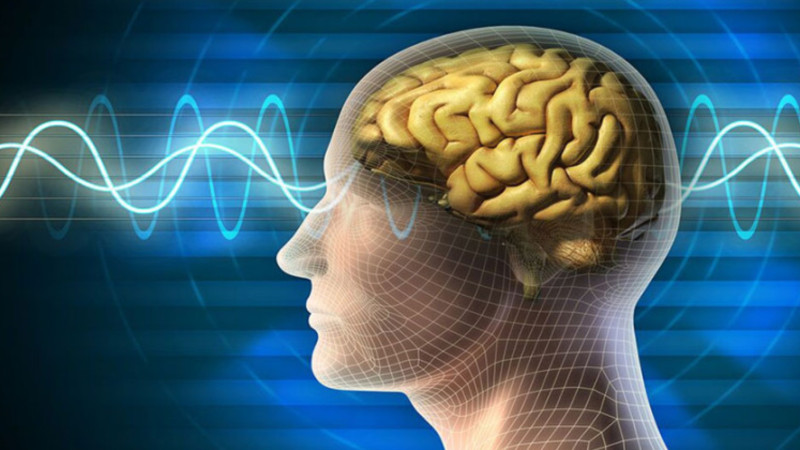References
1. Fox KC, Nijeboer S, Dixon ML, Floman JL, Ellamil M, Rumak SP, Sedlmeier P, Christoff K.Is meditation associated with altered brain structure? A systematic review and meta-analysis of morphometric neuroimaging in meditation practitioners.Neurosci Biobehav Rev. 2014 Jun;43:48-73. doi: 10.1016/j.neubiorev.2014.03.016. Epub 2014 Apr 3.
2. Hozel, Carmody, Lazar et al (2011) Mindfulness practice leads to increases in regional brain grey matter density. Psychiatry Resource 2011 Jan 30;191(1):36 43. Epub 2010 Nov 10.
3. Goldin, P. & Gross, J. (2010). “Effects of mindfulness-based stress reduction (MBSR) on emotion regulation in social anxiety disorder’. Emotion. 10, 1. 83-91.
4. Klatt, M.D., Buckworth J., and Malarkey, W.B., (2009) “Effects of low dose mindfulness based stress reduction (MBSR-ld) on working adults.” Health Education and Behaviour, 36, 601-145.Wolever RQ1, Bobinet
5. KJ, McCabe K, Mackenzie ER, Fekete E, Kusnick CA, Baime M.J “Effective and viable mind-body stress reduction in the workplace: a randomized controlled trial.” Occup Health Psychol. 2012 Apr;17(2):246-58. doi:10.1037/a0027278. Epub 2012 Feb 20.
6. Nyklicek, I., Mommersteeg, P.M.C., van Beugen, S., Ramakers, C., and van Boxtel, G.J.M. (2013) “Mindfulness based stress reduction and physiological activity during acute stress: a randomized controlled trial.” Health Psychology, 32, 1110-13)
7. The Journal of Alternative and Complementary Medicine“Does Mindfulness Meditation Contribute to Health?”Volume 8, Number 6, 2002, pp.719–730© Mary Ann Liebert, Inc.
8. “Mindfulness-based stress reduction and health benefits: A meta-analysis” Paul Grossman,*, Ludger Niemannb, Stefan Schmidtc, Harald Walachc, Journal of Psychosomatic Research 57 (2004) 35–43
9. Current Contributions of Psychological Research to General Health: The Case of Mindfulness TrainingBruno Cayoun, University of Tasmania
10. Biological Psychiatry, Alterations in Resting State Functional Connectivity Link Mindfulness Meditation With Reduced Interleukin-6: A Randomized Controlled Trial, Creswell et al, http://dx.doi.org/10.1016/j.biopsych.2016.01.008
11. Hofmann, S. G., Sawyer, A. T., Witt, A. A., & Oh, D. (2010). The effect of mindfulness-based therapy on anxiety and depression: A meta-analytic review. Journal of Consulting and Clinical Psychology. 78, 2.169-183.
12. Sedlmeier, P., Eberth, J., Schwarz, M., Zimmermann, D., Haarig, F., Jaeger, S., & Kunze, S. (2012). The psychological effects of meditation: a meta-analysis. Psychological Bulletin. 138, 6. 1139-71.
13. Kabat-Zinn, J., Massion, A. O., Kristeller, J., Peterson, L. G., Fletcher, K., Pbert, L., Lenderking, W. & Santorelli, S. (1992). Effectiveness of a meditation-based stress reduction program in the treatment of anxiety disorders. American Journal of Psychiatry. 149. 936-943.
14. Goldin, P. R., & Gross, J. J. (2010). Effects of mindfulness-based stress reduction (MBSR) on emotion regulation in social anxiety disorder. Emotion. 10, 1. 83-91.
15. Hölzel, B.K., Carmody, J., Evans, K.C., Hoge, E.A., Dusek, J.A., Morgan, L., Pitman, R. & Lazar, S. (2009). Stress reduction correlates with structural changes in the amygdala. Social Cognitive and Affective Neuroscience. 5. 11-17.
16. Jha, Amishi P., et al, “Examining the protective effects of mindfulness training on working memory capacity and affective experience.” Emotion, Vol 10 (1), Feb 2010, 54-64.
17. MacLean, K. A., Ferrer, E., Aichele, S. R., Bridwell, D. A., Zanesco, A. P., Jacobs, T. L., Saron, C. D. (2010). Intensive Meditation Training Improves Perceptual Discrimination and Sustained Attention. Psychological Science. 21, 6. 829-839.
18. Mrazek M.D., Franklin M.S., Phillips D., Baird B., and Schooler J. (2013). “Mindfulness training improves working memory and GRE performance while reducing mind-wandering.” Psycholical Science, 24, 776-81.
19. Levy, D.M., Wobbrock, J.O., Kaszniak, A.W., and Ostergren, M. (2012) “The Effects of Mindfulness Meditation Training on multitasking in a high stress information environment. Proceedings of Graphic Interface, Toronto, Ontario (May 28-30 2012). Toronto: Canadian Information Processing Society, pp. 45-32
20. Van Leeuwen, S., Singer, W., & Melloni, L. (2012). Frontiers in Human Neuroscience, 6(133).
21. Hulsheger, U.R., Alberts, H.J.E.M., Feinholdt, A., and Lang, J.W. B. (2013) “Benefits of mindfulness at work: the role of mindfulness in emotion regulation, emotional exhaustion, and job satisfaction.” Journal of Applied Psychology, 98, 310-25
22. Colzato, L., Ozturk, A. & Hommel, B. (2012). “Meditate to create: the impact of focused-attention and open-monitoring training on convergent and divergent thinking.”
Front. Psychology. 3, 116 18 April 2012.
23. Greenberg J, Reiner K, Meiran N (2012) “Mind the Trap”: Mindfulness Practice Reduces Cognitive Rigidity. PLoS ONE 7(5): e36206. doi:10.1371/journal.pone.0036206
24. Davidson, R.J, and McEwen, B.S. (2012) “Social influences on neuroplasticity: stress and interventions to promote wellbeing.” Nature Neuroscience, 15, 689-95
25. Carson, JW.,“Mindfulness Based Relationship Enhancement”, Behavior Therapy, 35, 471–494, 2004
26. .Reb, J., Narayanan, J., and Chaturvedi, S. (2014) “Leading Mindfully: Two studies on the influence of supervisor trait mindfulness on employee wellbeing and performance.” Mindfulness, 5(1), 36-45
27. Leroy H., Anseel, F., Dimitorva, N.G., and Sels, L. (2013) “Mindfulness, authentic functioning, and work engagement: A growth modeling approach” Journal of Vocational Behaviour, 82, 238-47
28. Neff K.D., Rude, S.S., and Kirkpatrick, K.L. (2007) “An examination of self-compassion in relation to positive psychological functioning and personality traits.” Journal of Research in Personality, 41, 908-16
29. Eberth, J. & Sedlmeier, P. (2012). The effects of mindfulness meditation: A meta-analysis. Mindfulness, 3, 174-189.
30. Khoury, B., Sharma, M., Rush, S., & Fournier, C. (2015). Mindfulness-based stress reduction for healthy individuals: A meta-analysis. Journal of Psychosomatic Research, 78, 519-528.

